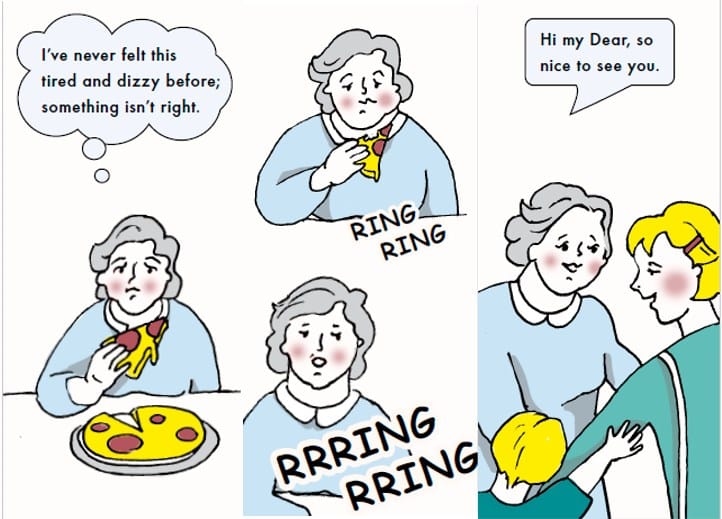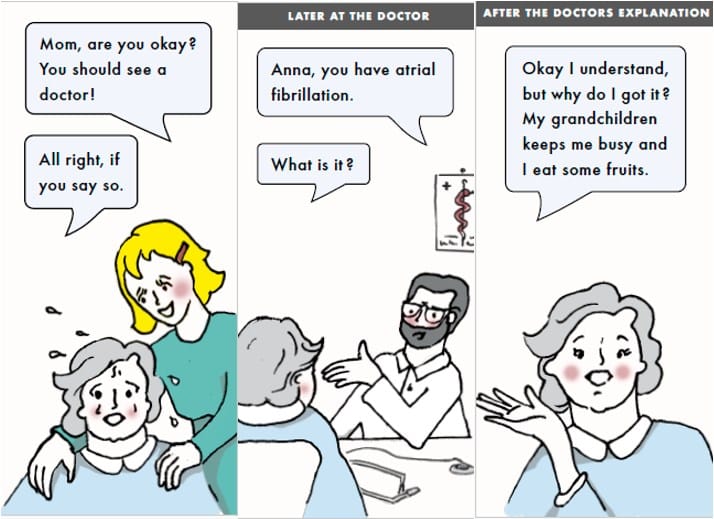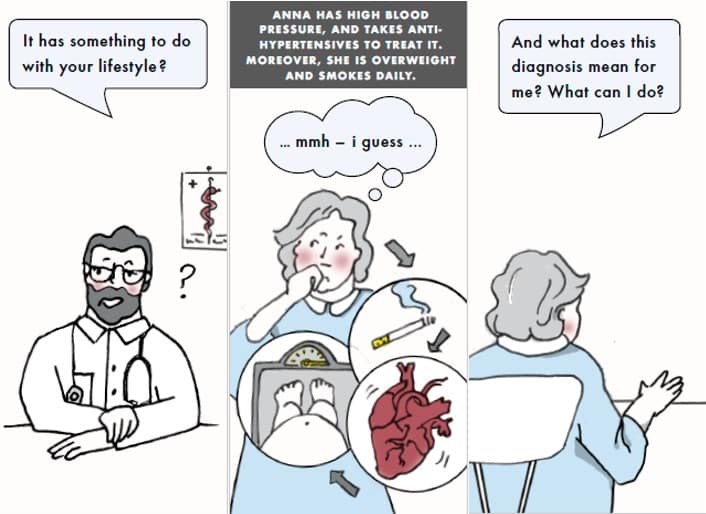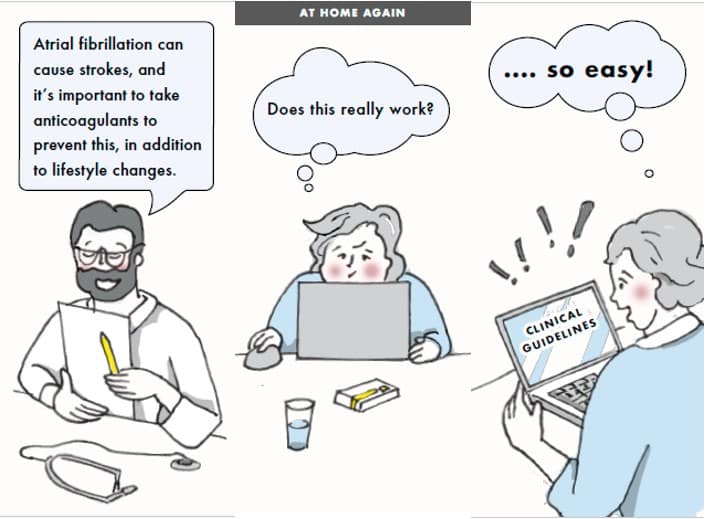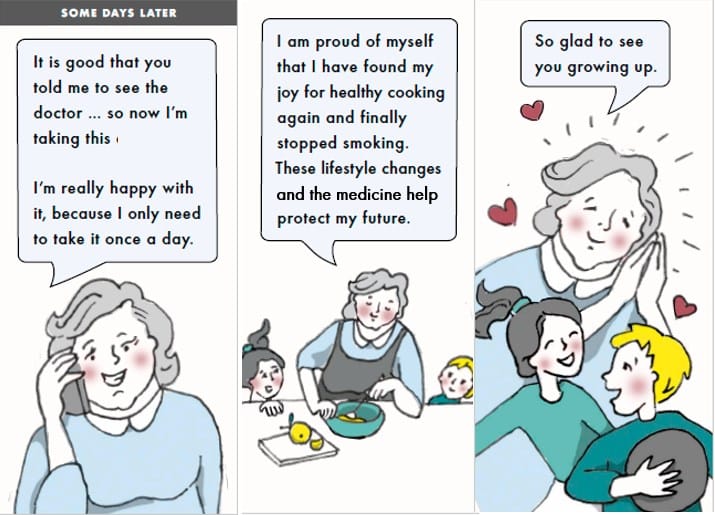It might start with a flutter. A skipped beat. Or feeling winded after climbing the stairs. Many brush it off — stress, too much coffee, maybe a poor night’s sleep
But what if your heart is trying to tell you something more?
Atrial fibrillation (AFib) is the most common type of long-lasting irregular heartbeat. And while it might seem harmless at first, it can lead to serious complications — especially stroke.
Why AFib is more dangerous than it feels
AFib causes the upper chambers of your heart (the atria) to beat out of sync with the lower ones. This disrupts blood flow and can lead to clots forming inside the heart. If a clot travels to the brain, it can cause a stroke — suddenly, and without warning.
People with AFib have up to a 5x higher risk of stroke, even if they feel completely fine.
That’s what makes AFib so dangerous: It’s often silent.




Common signs – and when to take them seriously
- A racing or irregular heartbeat (especially at rest)
- Shortness of breath during normal activities
- Dizziness or light-headedness
- Persistent fatigue or low energy
- A vague sense of unease or inner restlessness
Some people experience no symptoms at all — which is why routine check-ups, especially after age 60, are so important.
What to do when you are diagnosed?
- Nutrition
Adopt a balanced diet rich in fruits, vegetables, whole grains, and lean proteins. Reduce alcohol, caffeine, and sodium intake.
- Exercise
Moderate exercise, like walking or yoga, can improve your heart health.
- Stress Management
Techniques like mindfulness, meditation, or breathing exercises can lower the risk of AFib episodes.
- Monitor Your Heart
Wearables like smartwatches or fitness trackers with heart rate monitoring can help you track irregular rhythms and provide data for your doctor.
Get Regular Check-Ups – Knowledge is Power
Sometimes, high blood pressure and AFib show no symptoms until it’s too late. That’s why it’s crucial to monitor:
- Blood pressure
- Cholesterol
- Blood glucose
If diagnosed early, conditions like AFib can be managed with medication and lifestyle – and serious complications like stroke can be prevented.
Tip: Make a yearly heart health appointment part of your self-care calendar

💙 Final thoughts: Listen to your heart - literally
AFib doesn’t always shout. Sometimes, it whispers.But with awareness, the right lifestyle, and today’s medical advances, you can take control — before
complications arise.
